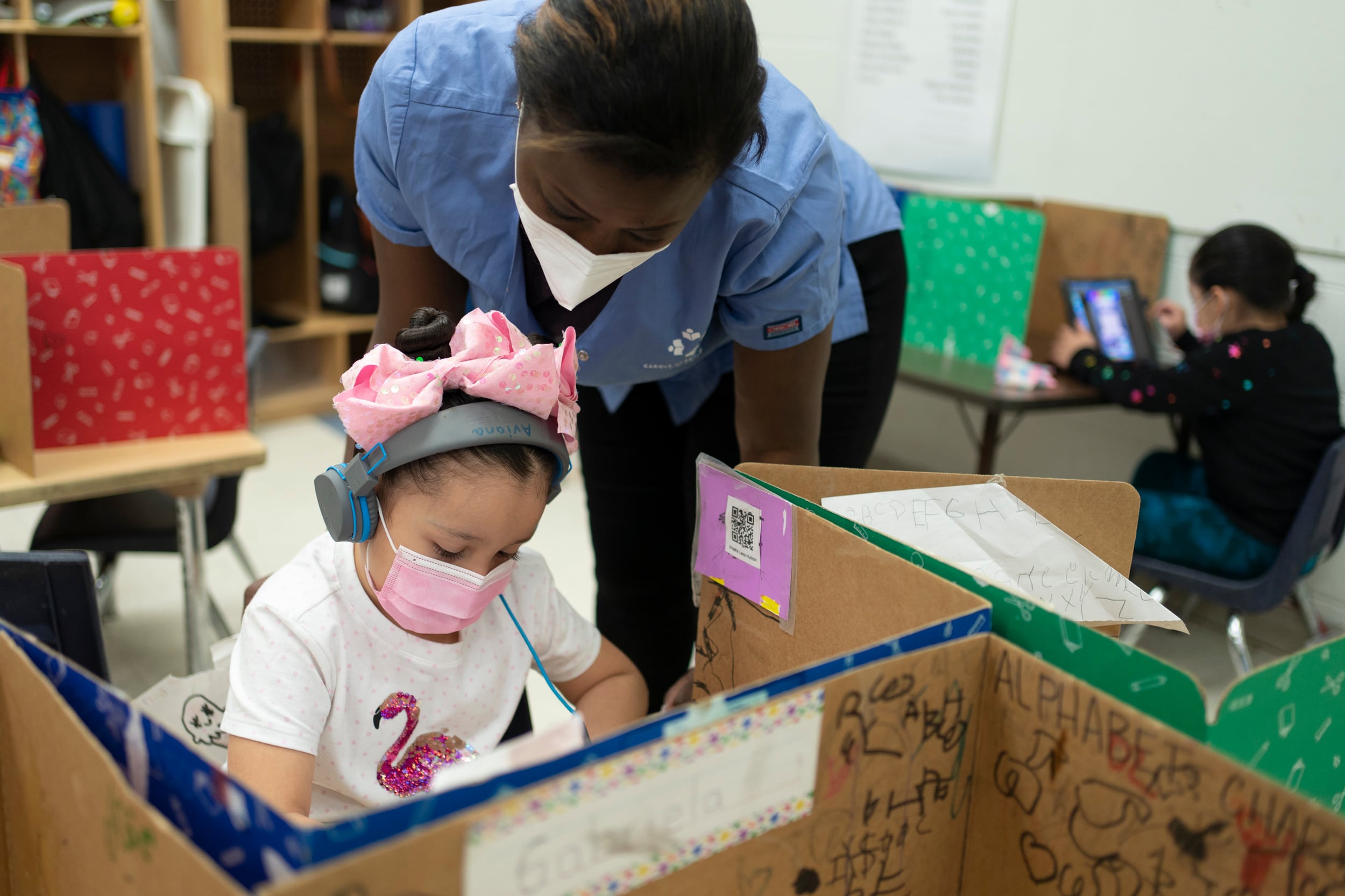Some Indiana students who live in poverty and performed below proficiency on state testing will soon be able to apply for the state’s new tutoring scholarships that provide up to $1,000 for tutoring in reading and math.
State officials announced Wednesday that families will be able to apply online for the scholarships starting Oct. 1. To do so, they will need to make an account on IndianaLearns.org.
Students who qualify based on their grade levels, socioeconomic status, and test scores will receive $500 from the state to spend. School districts can also provide another $250 toward the scholarship — which the state will then match — for a total one-time grant allocation of $1,000.
“As we continue to make historic investments in education, this grant will increase access to tutoring opportunities for our students who need it most, regardless of a parent or family’s ability to afford this additional support,” said Indiana Secretary of Education Katie Jenner.
Like many other states, Indiana is leaning on tutoring to help students recover from the effects of the COVID quarantines and school closures that disrupted learning over the last two years.
Though the most recent state testing scores show a slight recovery for many students, scores largely remain below pre-pandemic levels.
Indiana’s decision to put up to $15 million in federal emergency aid from the Elementary and Secondary School Emergency Relief Fund directly in parents’ hands for tutoring may be unique, however. Families will be able to spend the funds in a marketplace of pre-qualified tutors, or on virtual math and reading enrichment.
“To be able to put that agency and that ownership and opportunity in their hands to invest in their child — it’s powerful,” Jenner said.
The state is tapping the Mind Trust — an Indianapolis-based education nonprofit — to operate the program.
According to House Enrolled Act 1251, parents will be able to roll over any unused tutoring funds to the next year. However, the accounts will close on Oct. 1, 2024 with the expiration of the federal emergency funds.
How can students qualify?
To qualify for the state’s $500 grant, a student must reside legally in Indiana and be enrolled in a traditional public, charter, or accredited non-public school.
They must also qualify for free or reduced price lunch, and have scored below proficiency on both math and English/language arts state tests — the ILEARN — as a third or fourth grader in 2022.
Jenner said that in a perfect world, the program would be able to serve more students in the future. The state will collect data on the program in the hopes that it can eventually grow.
How can tutors participate?
To qualify as tutors, individuals and groups will need to apply through Indiana Learns and meet a list of qualifications.
They must provide services outside of regular school hours and keep to a 1:3 tutor-to-student ratio.
They must also utilize credentialed teachers — including licensed, retired, and prospective teachers currently enrolled in a preparation program — who can provide weekly progress reports to families and schools.
Their services should cost no more than $100 per hour for each student and session, and they will need to provide at least an hour of tutoring per week.
More information for tutors will also be available on the Indiana Learns website.
How can school districts match the funds?
The Department of Education will release more information in the coming weeks for school districts who want to participate in the matching program.
Three districts — Indianapolis Public Schools, Decatur Township Schools, and Muncie Community Schools — have already announced plans to match the tutoring grants for its qualifying students.
The state doesn’t know yet how many schools will match the state grant, but Jenner said her department is in talks with additional districts.
“We have not talked to any district yet who said no,” Jenner said.
IPS Superintendent Aleesia Johnson said the district is pulling information about which students will qualify for the grant in order to start notifying families of the opportunity.
The district has several of its own tutoring programs rolling out this fall as well, including virtual tutoring for all students.
“It’s about putting another tool in the toolbox of strategies to support our families,” she said.
Aleksandra Appleton covers Indiana education policy and writes about K-12 schools across the state. Contact her at aappleton@chalkbeat.org.






